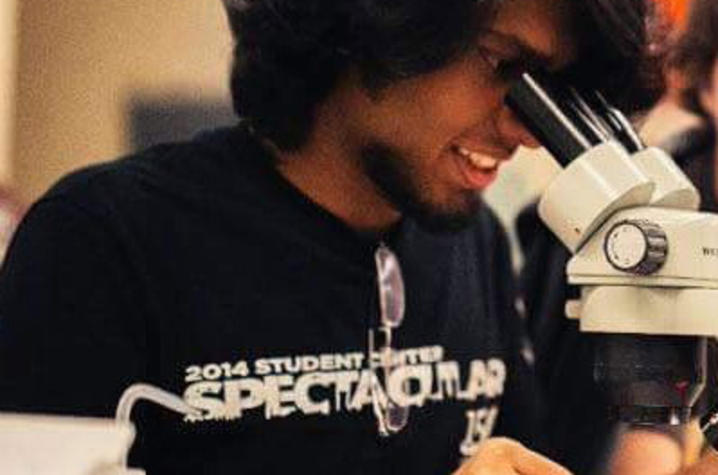Euphoria in Learning: UK International Student Ambassador is Dedicated to Academia

LEXINGTON, Ky. (Dec. 9, 2016) — Shane D’Souza is more than just a biology and chemistry major with an on-campus job at the University of Kentucky. The international student ambassador has discovered a passion for academia that propels him both in his undergraduate studies and in his job as a teaching assistant in chemistry.
D’Souza, who lived in the United Arab Emirates before moving to the United States, said that being an ambassador made the transition to this country easier for him.
“It was a very big stepping stone because it exposed me to people who were essentially going through the same thing. That gave me the confidence to go off on my own,” D’Souza said. “It’s been quite an adventure, not only meeting new students, but interacting with the faculty and other students involved.”
D’Souza said that coming to the United States has been of great help in his personal growth. One important thing he has discovered is a love and gift for teaching. Although he is fairly new to teaching, D’Souza has been passionate about learning from a very young age. He described education as a major part of his life, both inside and outside academia.
“I was that kid that watched animals on TV instead of cartoons,” he joked.
When it comes to teaching, D’Souza said that the moments he enjoys the most are when a student is able to attempt new concepts using tools they learned from class.
“Those gratifying moments happen every class. When a student calls out the answer without you asking them. When people actually utilize the office hours, and you can see that they’re trying to better their education,” he said.
D’Souza, who hopes to someday become a professor, said that he thinks that the large volume of work currently assigned in classes can actually be detrimental to students’ education.
“The problem with the system is that it’s trying to promote critical thinking, which I think is a very great cause, but the issue is that our ideology has not caught up with the practicality of it,” he said.
“We give students copious amounts of work, i.e. biochemistry has 43 chapters in the final; but we also want them to stop and think about the evolutionary means by which this could have occurred, and to stop and appreciate the complexity of these reactions and how integrated everything appears to be.”
To expand the breadth of his and other students’ learning, D’Souza is in the process of founding a student organization. The idea behind the organization is to facilitate exposure of students to primary literature, so that they are aware of the most current findings in life sciences, D’Souza said.
Jessica Shen, a sophomore and official of the organization, has found it to be useful. “I wasn’t very exposed to research when I came in, so it was just like a guide,” she said.
D’Souza has had preliminary research experiences in the biology and animal sciences departments. In his Biology 199 class, he embarked on a project to find developmental cues during regeneration in salamander species.
“That was where I realized that this is what I want to do with my life,” D’Souza said. “I want to be exploring the fundamental concepts in some field of biology. I wanted to be part of this elucidation team.”
After graduating, D’Souza hopes to further his research and pursue a postgraduate degree in developmental biology.




